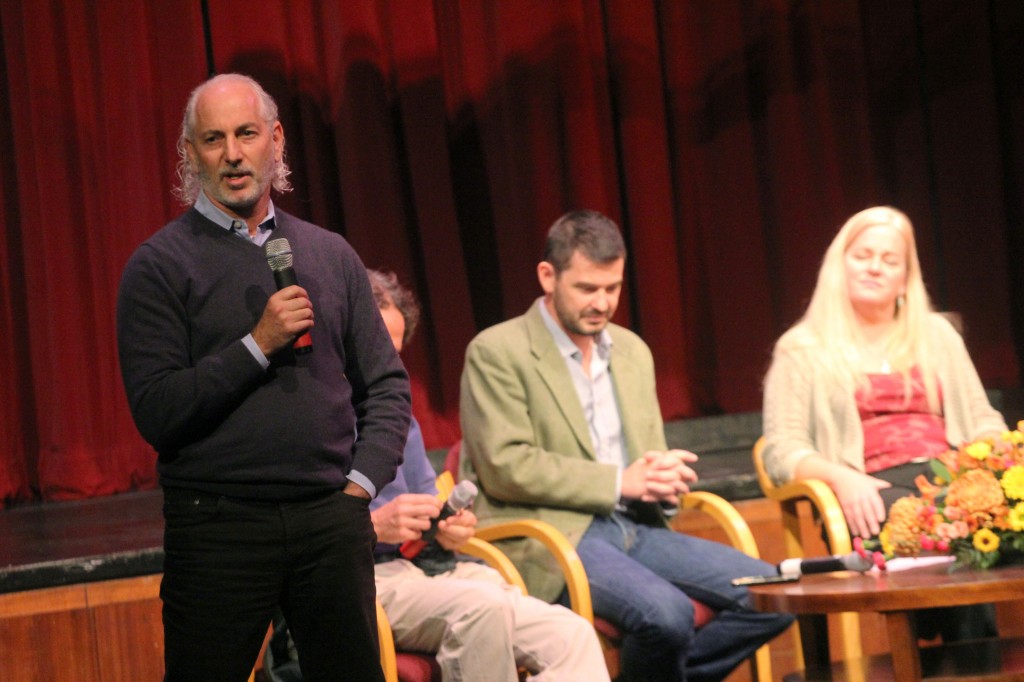
Though many Homecoming events focused around networking and career development, the inaugural TIER (Talks that Inspire, Educate and Resonate) Talk focused on finding success outside the workplace.
During Saturday’s talk, which was held in the Watters Theatre, entitled “Rethinking Success: Thriving in the Modern World,” alumni and faculty speakers discussed ways to approach creativity, personal goals, how to create a well-rounded life and take time off to rest.
“Statistics don’t necessarily show that people value work more than they value other things,” said Christopher Morgan-Knapp, associate professor of philosophy. “Research has shown again and again and again we will be healthy, we will be more resilient, we will be more productive, we will live longer, we will be happier, we will be more satisfied if we can be creative.”
Focusing on the positives instead of the negatives in life is also important, according to Frederic Luskin, director of the Stanford Forgiveness Project and a ‘76 alumnus.
“There’s gotta be someone you love that you’re pissed at,” Luskin said. “Or someone that you used to love that you haven’t let go of — some injury or some wound. I’m here to remind you that it’s time. It’s time to decouple, to sever the negativity that we create when the world is hurtful to us or treats us in ways that we don’t want.”
Morgan-Knapp analyzed why people engage in competitive goals with the jealousy and stress such competition entails.
“It often makes more sense to invest our time, energy and resources in the comparative and competitive [goals] even if we think they are equal in value,” Morgan-Knapp said. “And what generates envy is how what you have compares to what somebody else has. If we have some non-comparative goals and some comparative goals, we’re going to keep over-investing in the comparative ones.”
This competitive nature, Morgan-Knapp said, leads to overworking and neglecting personal time.
“On average, American workers left three paid vacation days unused last year,” Morgan-Knapp said. “That translates into 427 million days of unused vacation time. That’s over a million years.”
Kimberly Jaussi, associate professor of organizational behavior, said a large factor in success is creativity, which can lead to more efficient leadership.
“When I started really studying leadership, I realized that all of the good leaders solved problems in really creative ways,” Jaussi said. “It came to me that creativity is something very different than whether or not you can just make a pinch-pot.”
Rebecca Kornell, a member of the class of 2007, said the talk helped her think about life beyond end goals.
“I’m in a transitional phase right now: I’m not employed and I’m trying to find a career that I’m really passionate about,” Kornell said. “And from what the description was of the talk, of not comparing, and finding your path and going your way instead of the destination, I think that definitely influences my life right now.”
Kara Wendling, a member of the class of 2014, said she appreciated the alumni’s reflections.
“When you’re in college, you have all these opportunities to reach out and learn about different things, different philosophies or business tactics,” Wendling said. “So for alumni to be able to come back and get to experience it again, you can take it and apply what you learn here in your real life to be more open, have forgiveness, to reach out. I really hope they do more of these talks again.”


